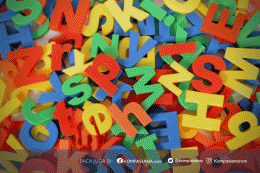Have you ever scrolled down a post or a comment on social media and seen a grammar mistake that changes the entire meaning? Or have you ever posted something and typed a wrong grammar and got corrected by someone or even a 'grammar police?' It can be funny, hilarious, cringe, and embarrassing and even leave you shaking your head! But at the same time, it can be dangerous and misleading people to misinformation or miscommunication, especially if it's an important post, even if it's only a simple mistake.
Worry not! Everyone makes mistakes, for non-native speakers or even for native speakers themselves. Mastering English itself is not as easy as it seems, especially mastering grammar. Even famous people can make grammar blunders too!
Kim Kardashian, a celebrity, once shared a post with a basic grammatical error, and the internet quickly exploded by making fun of her! The post itself is a photograph of Kim and her daughter on her trip to Italy with a caption "Site seeing," and posted it on Instagram. Kim might have meant to write "sightseeing" but ended up writing the word "site" and changing the whole meaning. The internet quickly commented and made fun of her because of those simple mistakes.
Another celebrity, like Justin Bieber, also made a grammar mistake on one of his hit songs, "Boyfriend," by an 11-year-old boy! In the lyric part, "If I was your boyfriend, i'd never let you go" caught the boy's attention because of the incorrect use of the subjunctive mood where it should be "if I were your boyfriend" and gave him an "F" for his bad grammar.
But how did this happen? And how big is the impact on online communication? We will be talking about common types of grammatical errors, why they happen, how to prevent them, and their impact on online communication.
Common Types of Grammatical Errors in Social Media
There are so many types of grammatical errors that could happen in social media, but here is the common one!
1. Common Typos
This is the most common one; even simple typos can change its meaning. A lot of people usually make these mistakes because of misplaced apostrophes or confusing homophones and do not care if it is incorrect as if they let it go and used these on the internet. In fact, it really does matter. For example:
"It's" and "Its"
"It's" is a contraction for "it is," like in the sentence "It's a sunny day," while "its" is a possessive pronoun used to show ownership, like in the sentence "The dog wagged its tail."








